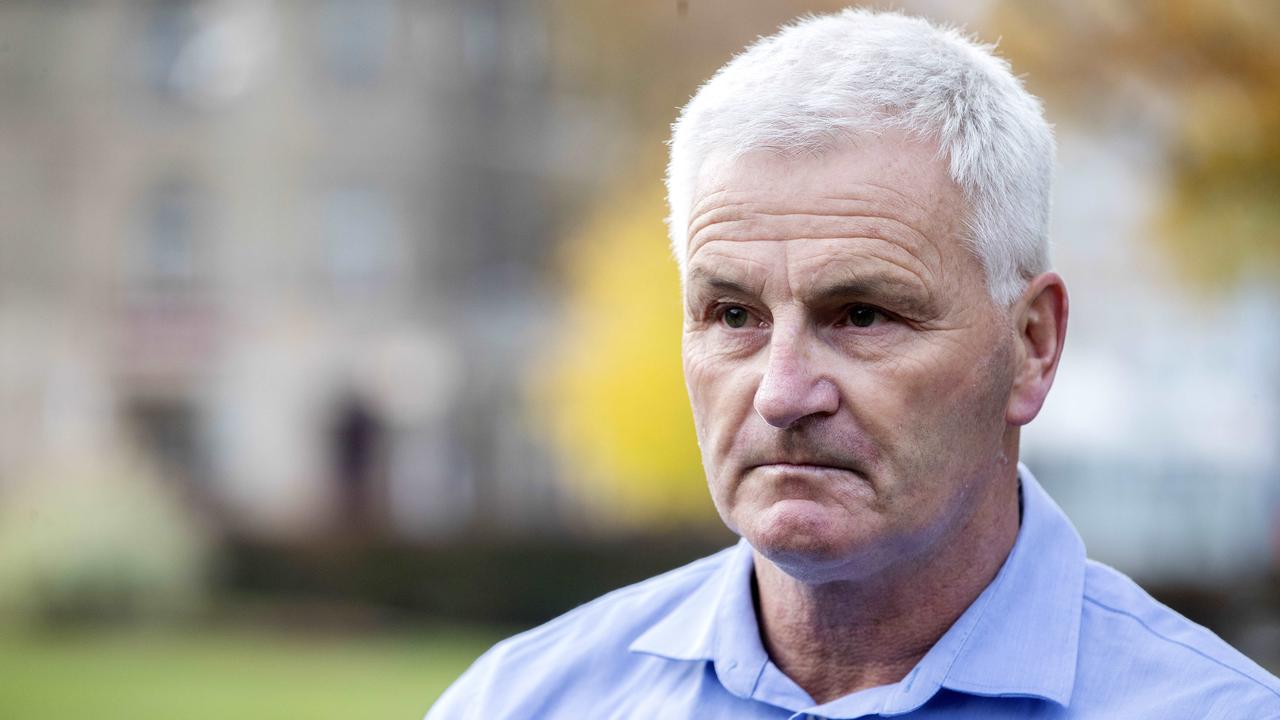Covid Tasmania: Current rules guarding against Omicron variant, says Premier Peter Gutwein
All international travellers intending to travel to Tasmania must undergo two weeks quarantine in the mainland state of their arrival with testing before they can enter Tasmania. LATEST >>
Coronavirus
Don't miss out on the headlines from Coronavirus. Followed categories will be added to My News.
TASMANIA’S plan to reopen its borders on December 15 remains unchanged despite the emerging threat posed by the new strain of Covid-19, but the state government says current rules are guarding against the Omicron variant.
Following a meeting of the National Cabinet on Tuesday to discuss responses to the strain, which is prevalent in southern Africa, Premier Peter Gutwein said there were strong restrictions in place to shield Tasmania.
Mr Gutwein said Victoria, NSW and the ACT had introduced 72 hours home isolation and testing for all returning Australians, with 14 days quarantine for travellers returning from southern African countries.
“To be clear, any returning Australians seeking to come to Tasmania, following the 72 hours home isolation in another state and a negative PCR test, will still need to comply with Tasmania’s current border restrictions,” he said.
“These require travellers who have been overseas in the 14 days before they arrive in our state to get approval to enter, and quarantine for a total of 14 days with testing.”
Any traveller who has been in South Africa, Botswana, Lesotho, Eswatini, Zimbabwe, Namibia, Mozambique, Malawi or the Seychelles are prevented from entering Tasmania, until they have done 14 days of quarantine and required testing in the mainland state of arrival.
“National Cabinet also noted the importance of rapidly gathering information about the Omicron strain, and that no further immediate changes to current settings are required at this time, based on the medical advice provided by the chief medical officer,” Mr Gutwein said.
Tasmania currently has border restrictions with the entirety of Victoria, NSW and the ACT, with those jurisdictions declared high-risk for Covid-19.
That will change on December 15 when fully vaccinated travellers nationwide will be able to travel to Tasmania, subject to mandatory pre-travel testing for travellers from high-risk places.
Traveller to Tasmania cleared of Omicron infection
PUBLIC health authorities say they have identified one person in Tasmania who was recently in southern Africa, where the new Covid-19 variant Omicron has sparked panic – but the individual has so far tested negative to the virus.
It comes as Tasmania prepares to introduce additional border measures in response to the emergence of the new Covid strain, following the implementation of new national measures by the federal government.
Omicron has been classified as a variant of concern by the World Health Organisation.
Public Health director Mark Veitch said the person in Tasmania who had recently been in one of the southern African countries remained in quarantine and had tested negative to Covid-19 “with further testing to be undertaken”.
“The emergence of new variants highlights the ongoing risk that Covid-19 poses globally and the importance of people continuing to follow the key behaviours,” Dr Veitch said.
He said the state’s additional border measures would provide a further buffer to reduce the risk to the Tasmanian community.
Travellers from South Africa, Botswana, Lesotho, Eswatini, Zimbabwe, Namibia, Mozambique, Malawi and the Seychelles will not be able to enter Tasmania until they have completed 14 days of supervised quarantine and the required testing in the mainland state where they arrived.
‘Miscommunication’: Concerns over complex Covid rules
THERE is mixed reaction to new rules on how positive Covid cases and their close contacts will soon be managed in Tasmania, with some describing the plan as confusing and complex and others saying the restrictions were reasonable.
A significant number of Covid-19 cases are forecast to be detected in the community after the reopening of state borders on December 15, with the state government’s plan released on Friday afternoon (see below) laying out restrictions depending on a person’s vaccination status.
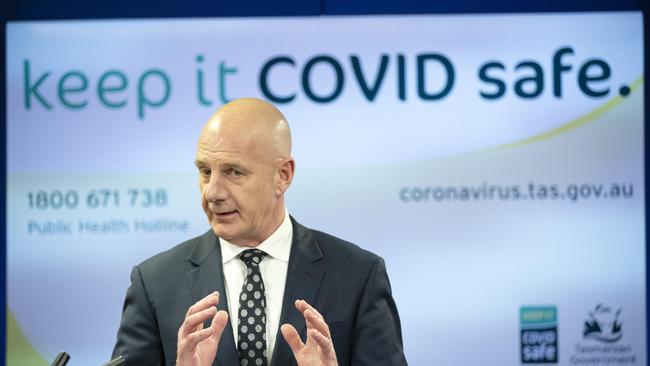
People who test positive to Covid-19 will have to isolate for at least 10 days, vaccinated close contacts of positive cases will be forced to quarantine for seven days and 14 days quarantine for unvaccinated close contacts.
Australian Lawyers Alliance spokesman Greg Barns said the complexity of the rules could result in people inadvertently breaching them.

“One of the concerns we’ve always had with Covid rules is the complexity of those rules, and therefore people inadvertently breaching them and their conduct being criminalised,” he said.
“Another difficulty is that the rules don’t take account of the very high rate of functional illiteracy ... they are essentially unfair to and discriminating against people who have difficulties with literacy.”
Mr Barns also questioned the timing of the announcement just before the weekend, as did Labor MP Ella Haddad.
“What happened (on Friday) was a masterclass in miscommunication,” Ms Haddad said.
“We’ve now got less than three weeks for Tasmanians and businesses to prepare.”
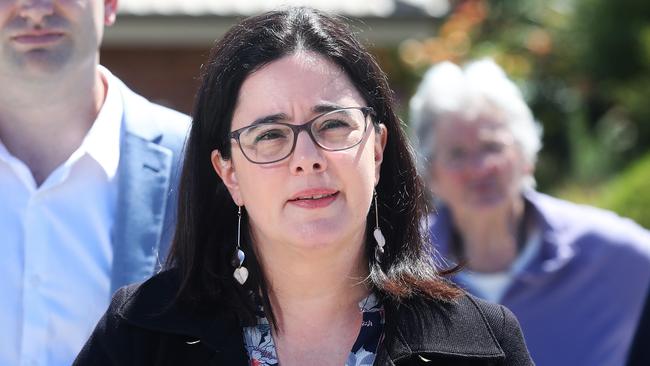
Tasmanian Chamber of Commerce and Industry chief executive Michael Bailey praised the government’s management of the pandemic and said the rules were sensible.
“Coming out of Covid restrictions was always going to be more difficult than introducing them, and that is what we are seeing here,” he said.
“Tasmania has been incredibly lucky and well-managed to avoid Covid ... we know that Covid is going to come back and we can’t keep locked up forever, we have to ease our way into this new world.”
Mr Bailey said the TCCI was working with businesses and government to navigate the effects of the new rules on operators.
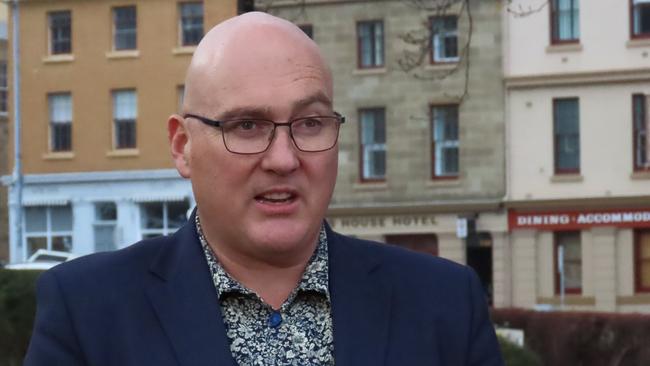
Ian Hall, the business manager of the Port Cygnet Cannery, which rolled out $5000 monthly prizes for vaccinated diners at the venue, said the plan would challenge operators.
“It’s going to be a bit of a shock to the community because we’ve been happily sitting here, effectively Covid-free for quite some time,” he said.
“The impost is going to be quite large on businesses, particularly tourism and hospitality businesses, because potentially we could have our staff being put in quarantine.
“We’ll take a positive view and try and work with these arrangements the best we can, but it just shows that the ongoing impacts of Covid are significant and we cannot get away from it.”
The second winner of the $5000 prize in a random draw was a local resident who initially thought the call from the business was a scam, Mr Hall said.
Eventually, the lucky winner did believe it and went for dinner at the restaurant on Friday and claimed her prize.
Premier Peter Gutwein said under the new plan, all Covid-19 cases and contacts would continue to be managed by Public Health, which said the rules aimed to reduce the time people were in isolation.
Tasmania’s Covid rules for vaccinated v unvaccinated
Premier Peter Gutwein has revealed Tasmania’s ‘Testing, Quarantine and Isolation Plan’ once borders open next month and cases undoubtedly rise.
Testing, quarantine and isolation plan
If you are a positive Covid case:
- You must isolate for a minimum of 10 days and potentially longer based on symptoms
- No further testing requirements. Can leave after meeting the criteria for release from isolation
- Isolate in a suitable premises. If people are in the same house they become close contacts.
- People with prolonged symptoms may need to isolate for longer periods of time.
If you are an unvaccinated close contact of a positive Covid case
- Quarantine for 14 days
- Minimum 3 tests: Tested immediately, tested on day 5-6, tested on day 12-13, Can leave after 14 days and negative test
- Unvaccinated people in the same household to follow the same quarantine requirements. Vaccinated people in the household avoid high risk settings for 14 days and may be required to wear a face mask
>> READ MORE: Free Covid tests keep Tassie’s travel sector moving
If you are a vaccinated close contact of a positive Covid case
- Quarantine for 7 days
- Minimum 3 tests: Tested immediately, tested on day 5-6, tested on day 12-13, Can leave after 7 days and negative test
- Unvaccinated people in the same household to follow the same quarantine requirements.
If you are a casual contact
- No quarantine/isolation requirements
- Minimum 1 test: Tested on day 3-5; test if symptoms develop
- No household isolation / quarantine requirements
- Wear a mask when unable to physically distance for 14 days from exposure
If you are a low-risk exposure
- No quarantine/isolation requirements
- No testing requirements but test if symptoms develop
- No household isolation / quarantine requirements
Businesses and venues
- Businesses are largely expected to be able to continue to operate if there is a positive case, or casual or close contacts identified on their premises, with their Covid-safety plans in place.
- They will be expected to undertake cleaning and disinfecting to reduce any residual risk.
- Staff, customers and clients will need to follow the isolation and quarantine guidelines.
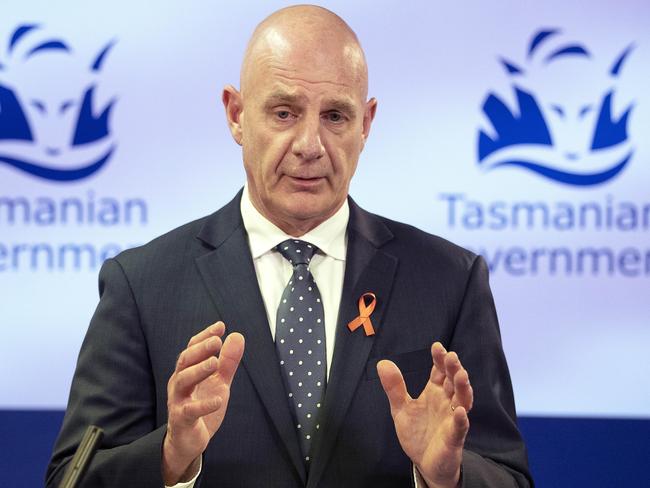
“Public Health will continue to manage all cases and contacts as we move forward, importantly positive cases will be required to isolate for two weeks and be managed by Public Health and we expect because of the high vaccination rate and therefore hopefully milder symptoms that most cases will be managed at home at a suitable premise through the Covid at home program,” Mr Gutwein said.
“Household members will also be able to remain at home with the positive case on the basis that any contact is limited and any household members will be managed as a close contact and that’s something we will work through with Public Health.
“People who are identified as close contacts will be required to quarantine – the length of the quarantine will depend on several factors including the length of exposure, the vaccination status of both the case and the contact and any PPE used in the nature of exposure.”
Mr Gutwein said if you’re identified by Public Health as a close contact it means you’ve had prolonged exposure and face-to-face contact with a confirmed case of Covid-19.
“If you were for 15 minutes or more sitting next to someone in the car, sitting on the same table at a restaurant or sharing a small office space or the positive case was infectious including the 72 hours before they got symptoms you’d be a close contact,” the premier explained.
“Close contacts, this definition won’t apply to health care workers because they use infectious control precautions such as PPE and they’ll be managed differently.”
He said if you’re identified as a close contact Public Health will ask you to do one of two things depending on whether you are vaccinated or not.
“If you’re vaccinated you’ll be directed to quarantine for seven days as a close contact at home from the date of exposure and you’ll be tested immediately. You’ll then need to be tested on Day 5 or 6 and subject to a negative test result you can leave quarantine at that time,” Mr Gutwein said.
“There’s no need to have the full 14 days as we’ve had in the past. You’ll then be required though to have a test on day 12 while you’re out in the community. From release after seven days through to day 14 while out in the community or at work you’ll be required to wear a mask when you can’t physically distance, avoid non-essential activity, avoid contact with vulnerable people.”
Update on Covid cases
Mr Gutwein also provided an update on the two Covid cases Public Health have been managing.
“One an adult male has now been released (from medi-hotel Fountainside) after producing a negative result and the other an 18-month old baby still remains with us and I understand is progressing well,” he said.
The Premier took the opportunity to urge residents to get vaccinated — especially those who had already had their first dose, to turn up for their second dose appointment.
He said Tasmania’s vaccination targets remained on track with 92% of those aged 12 and over having had one dose and 84.3% being fully vaccinated.
“What this means is we still have 26,500 Tasmanians that are due for their second dose before the 15 of December.
Meanwhile, more than 1.5 million people are due for booster shots by Christmas Day, mainly frontline workers and high risk groups, including those with a disability.
In January 2.5 million people will need to book their booster, before it climbs to 3.25 million in February and 4 million a month in March and April to prevent a new coronavirus wave.



